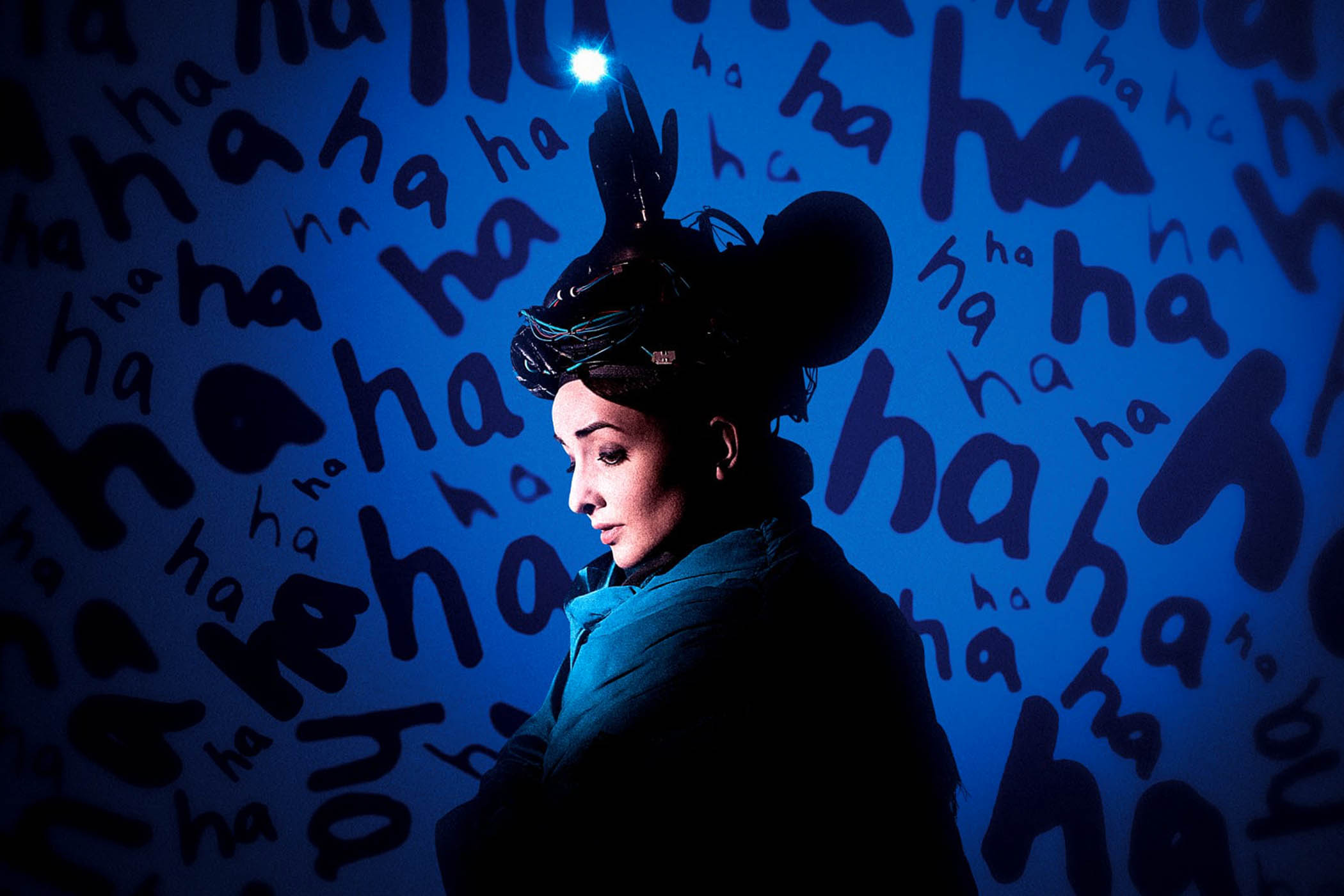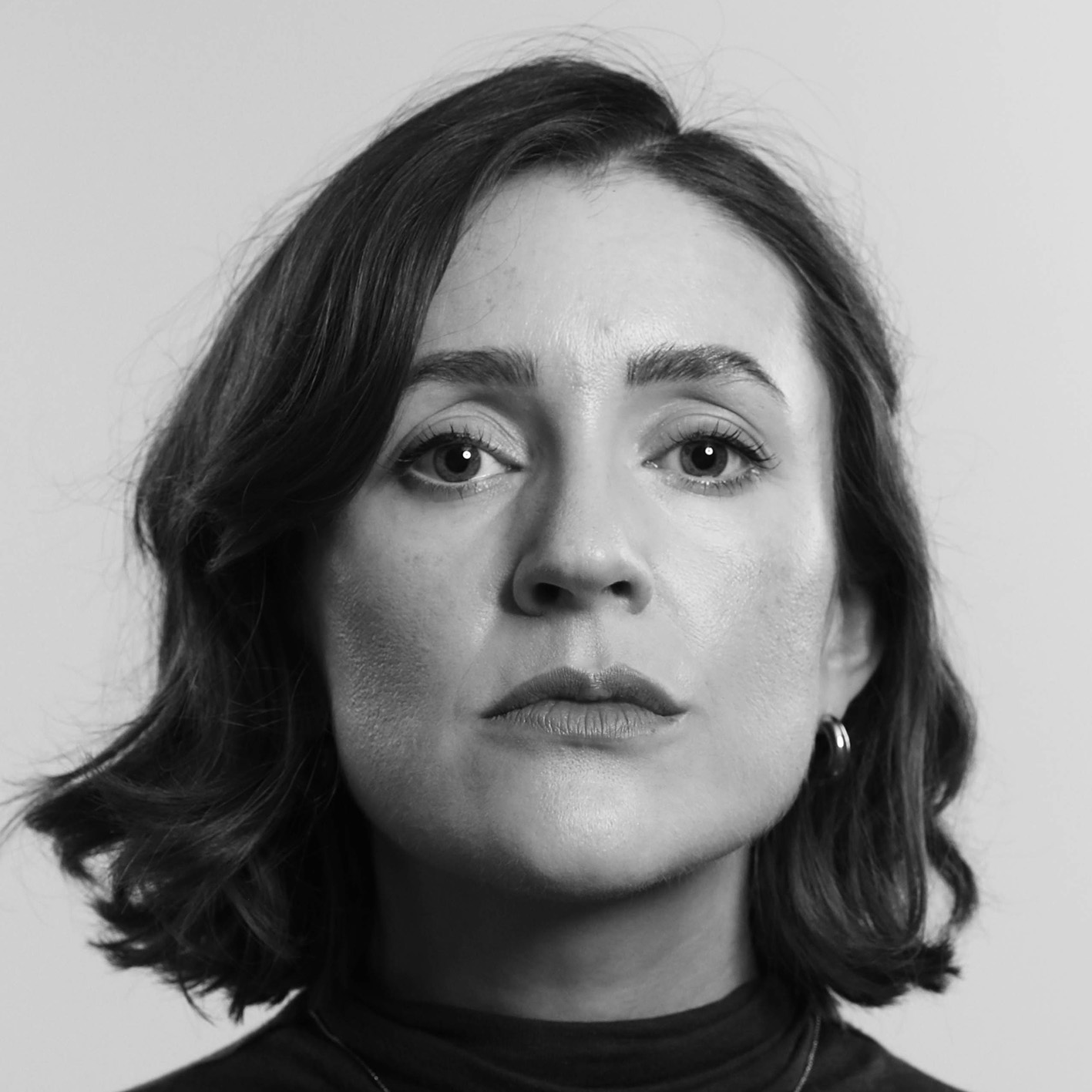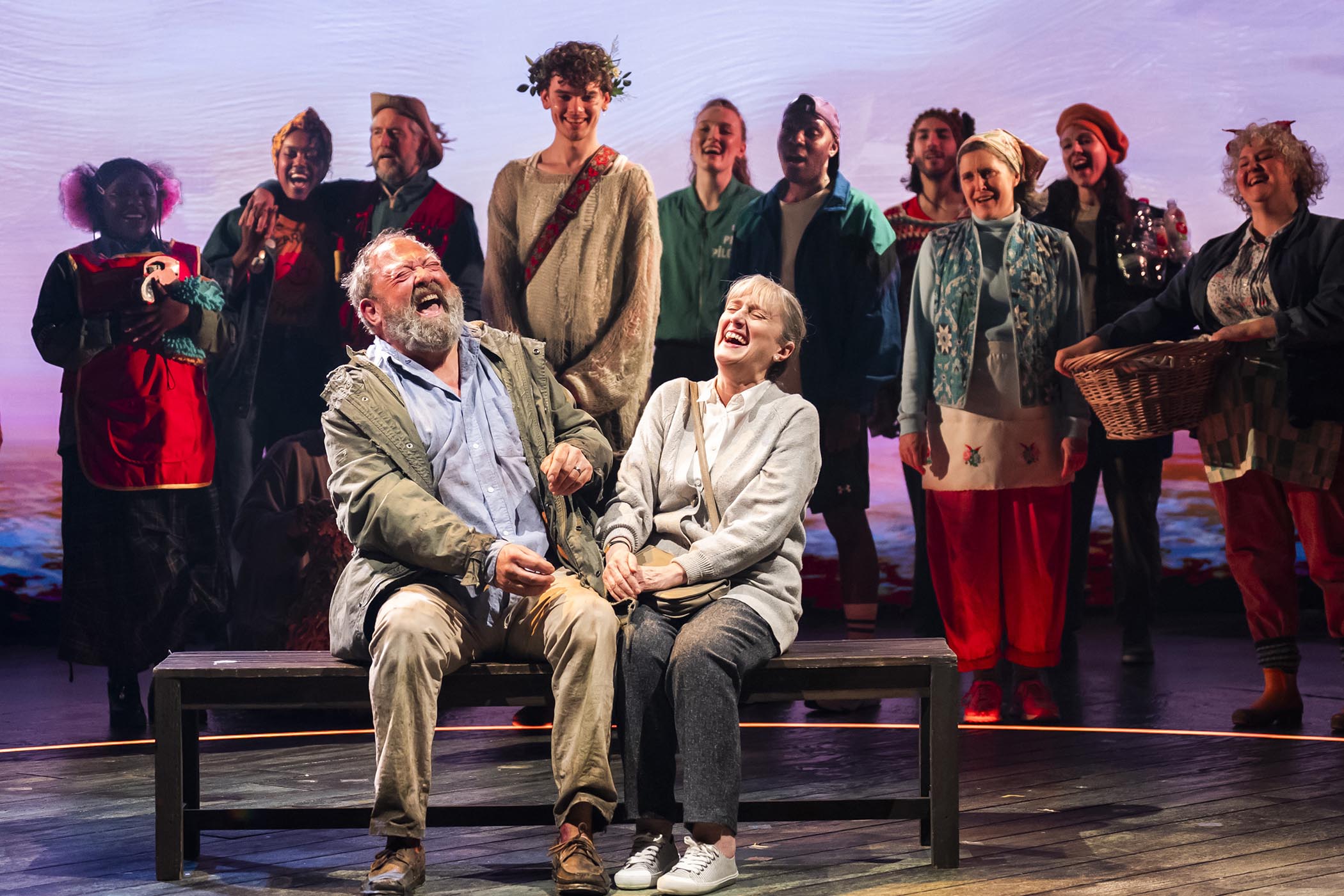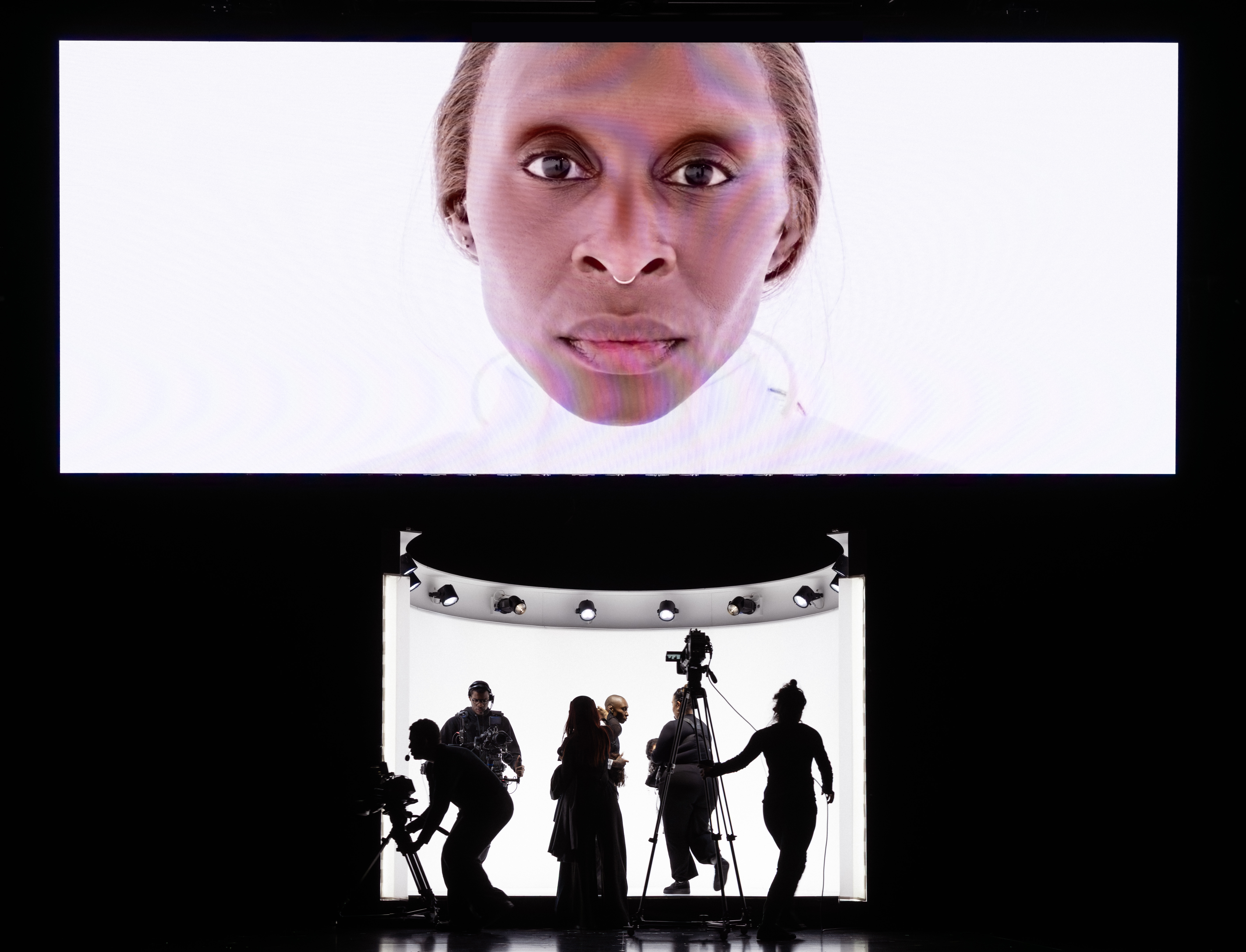For the past three years, Julia Masli has collected problems. And night after night, in theatres around the world, she has tried to solve more than 1,500 of them.
Masli isn’t a therapist, priest or life coach – she’s a clown. Her show hahahahahahaha is an otherworldly experience: she roams the room, swathed in blue fabric, holding a golden mannequin leg that doubles as a microphone and asking audience members: “Problem?”
But instead of fearing the audience interaction, Masli has created a space where people are braced to expect the question – and so are willing to answer it (somewhat) honestly.
Her director, the performance artist Kim Noble, suggested that she should record the problems, ending each show with a soundscape of that night’s human concerns. Those recordings have now been transformed into a BBC Radio 4 documentary, Illuminated: Problems with Julia Masli.
Delving into the archive “felt like time travelling”, says Masli on a call from Los Angeles, where she’s currently performing. The show has become an accidental archive of what her audience cares about and why.
Money, grief, bad bosses, and baldness are fairly universal. “Love is a big one,” Masli says. “Heartbreak and people looking for love, all over the world. Fear for what’s happening in the world has gotten more prevalent as I’m doing the show. And then there is loneliness.” Talia Augustidis, the show’s producer, agrees: “A lot of people are lonely.”
That, perhaps, is why so many people are drawn to the show and the concept of communal sharing.
‘Everyone wants to either help or open up. It happens naturally over the show’s progression’
‘Everyone wants to either help or open up. It happens naturally over the show’s progression’
Julia Masli, clown
Both Masli and Augustidis are reluctant to draw conclusions about the state of the world from the range of problems they’ve faced, but some themes have emerged. “I’ve learned that all of us are struggling, all the time,” says Masli, who has been open recently about her own mental health. “And that is nice, I think. It gets me out of my head.”
While Masli tries to offer solutions herself – she’s created a database to match those looking for love, for example – her favourite aspect of the show is the way that strangers are quick to step in and help one another.
“When it started happening, it was like the show taking on a life of its own.” People have shared drinks with the thirsty, cough sweets with the sore-throated, showered the insecure with compliments, and even cut off hair to donate to the balding.
Newsletters
Choose the newsletters you want to receive
View more
For information about how The Observer protects your data, read our Privacy Policy
In one encounter featured in the documentary, a person worried about raising money for gender-affirming surgery finds themselves inundated with donations from strangers.
“I didn’t think anyone was going to donate anything – you don’t really have that faith in strangers,” he recalls. “The fact that a room of strangers could bring together so much from just me saying what happened… that was incredible.”
“It’s maybe obvious to say, but that feels hopeful,” Masli says.
The simple act of sharing a problem has proven almost as powerful. In one recent show, an audience member told Masli they had lost their home in the LA fires – how could a clown fix that? Masli asked if anyone else had experienced the same. “It had happened to two other people, they were all crying and stayed together during that show. That was really moving, seeing them connect and just be with the pain together.”
As soon as the first person in the room shares something honest, “everyone wants to either help or also open up”, Masli says.
“It happens naturally over the progression of a show,” adds Augustidis. “One person will say something a bit deeper – maybe they’re grieving or experiencing a breakup. They show vulnerability, then the room changes. People respect that, then follow suit.”



